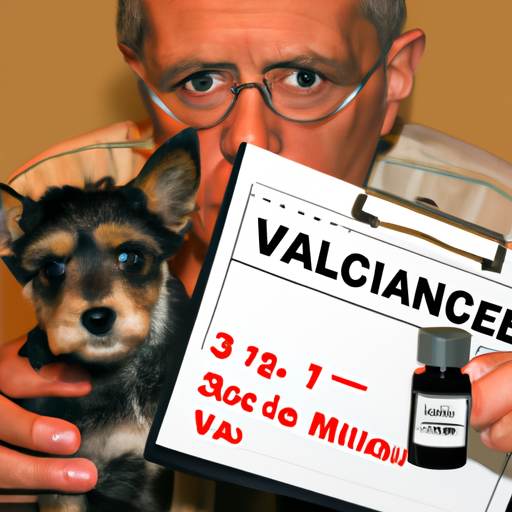Understanding Rabies and Its Impact on Dogs
Rabies is a serious, often fatal, viral disease that affects domestic and wild animals alike. It’s transmitted primarily through bites from infected animals. As a caregiver, your dog’s health is your top priority. Rabies isn’t just a threat to your pet, but it’s also a public health risk. Thus, it’s crucial to understand when your dog needs a rabies shot.
The Initial Rabies Vaccination
Your puppy isn’t born with immunity to rabies. They need their initial vaccination once they reach a certain age. Typically, puppies receive their first rabies vaccine between 12 and 16 weeks of age. It’s important to consult your vet to determine the best time for your dog’s initial shot.
Remember:
- Puppies should be at least 12 weeks old.
- It’s best to consult your vet for the exact timing.
- The initial vaccine provides immunity for a year.
The Booster Shots
After the initial vaccination, your dog will need periodic booster shots to maintain immunity. In general, dogs get a booster one year after their first vaccination, and then every three years following. But the exact schedule may vary depending on local regulations and your dog’s health condition.
Here’s a basic timeline:
| Age of Dog | Rabies Vaccination |
|---|---|
| 12-16 weeks | Initial shot |
| 1 year later | First booster shot |
| Every 3 years | Regular boosters |
The Importance of Adhering to the Vaccination Schedule
Sticking to the rabies vaccination schedule is vitally important, not just for your dog’s health, but also for your safety and the safety of your community. Missed or late vaccinations can leave your dog vulnerable to the disease and potentially put others at risk.
Key points to remember:
- Adhere to your vet’s recommended schedule.
- Keep track of your dog’s vaccination records.
- Regular vaccinations help protect your community.
Recognizing Rabies Symptoms in Dogs
Knowing the symptoms of rabies can help you take quick action if you suspect your dog has been exposed. Common symptoms include sudden behavioral changes, unexplained aggression, difficulty swallowing, fever, and seizures.
If you notice any of these symptoms, contact your vet immediately:
- Sudden behavioral changes
- Unexplained aggression
- Difficulty swallowing
- Fever
- Seizures
FAQs
Q: Can I vaccinate my dog against rabies at home?
A: No, rabies vaccinations should always be administered by a licensed vet or a trained professional.
Q: How often does my dog need a rabies shot?
A: After the initial vaccination and the first booster after one year, your dog typically needs a rabies shot every three years.
Q: Is the rabies vaccine safe for my dog?
A: Yes, the rabies vaccine is safe for most dogs. However, like any vaccine, there may be side effects. Speak with your vet about any concerns.
Q: What should I do if I suspect my dog has been exposed to rabies?
A: If you suspect your dog has been exposed to rabies, contact your vet immediately. Do not attempt to handle a potentially rabid animal yourself.
Q: Are there any exemptions for rabies vaccinations in dogs?
A: Some jurisdictions may allow exemptions for dogs with certain health conditions. However, this is not common and you should always consult with your vet and local regulations.



